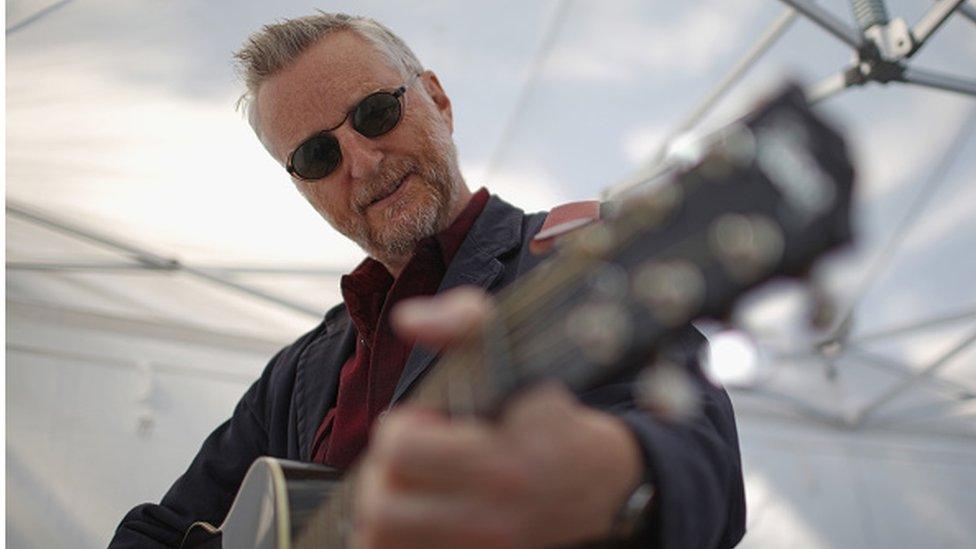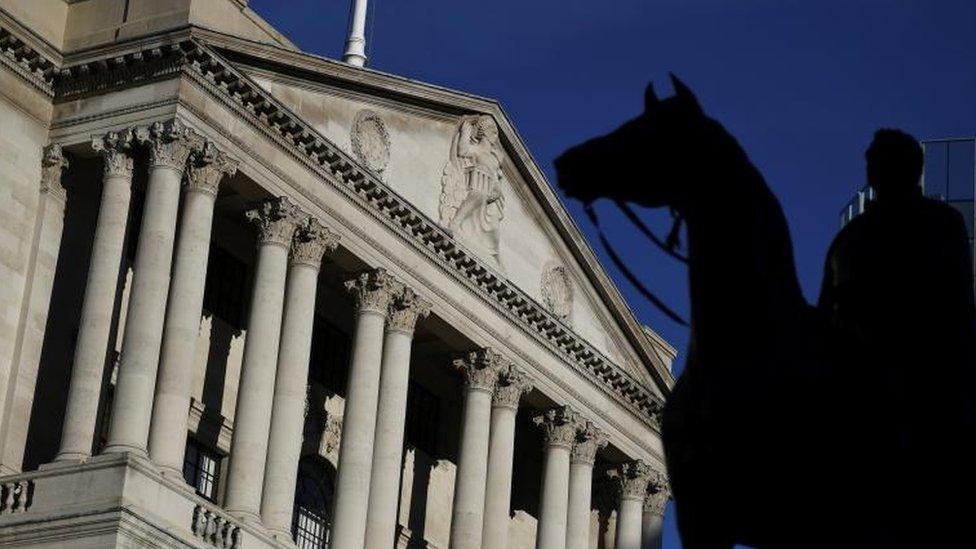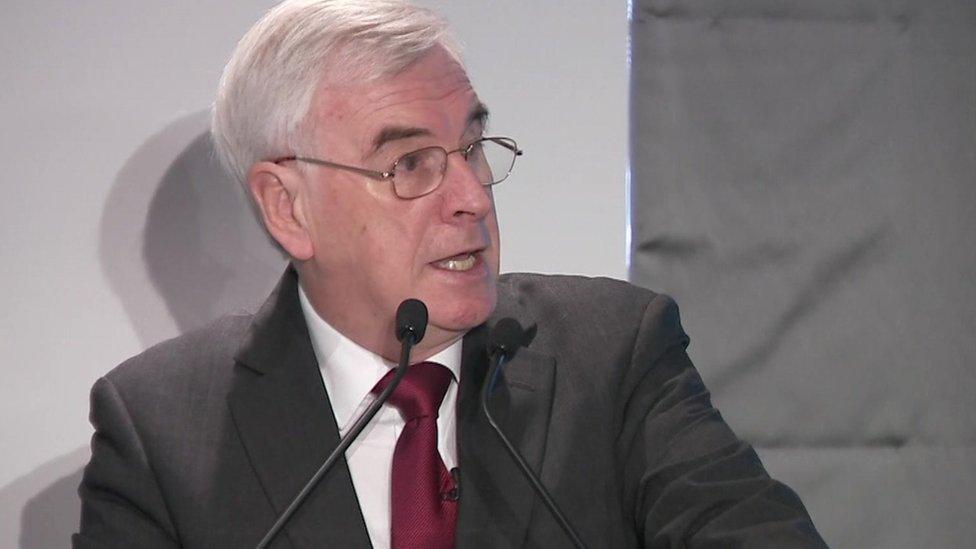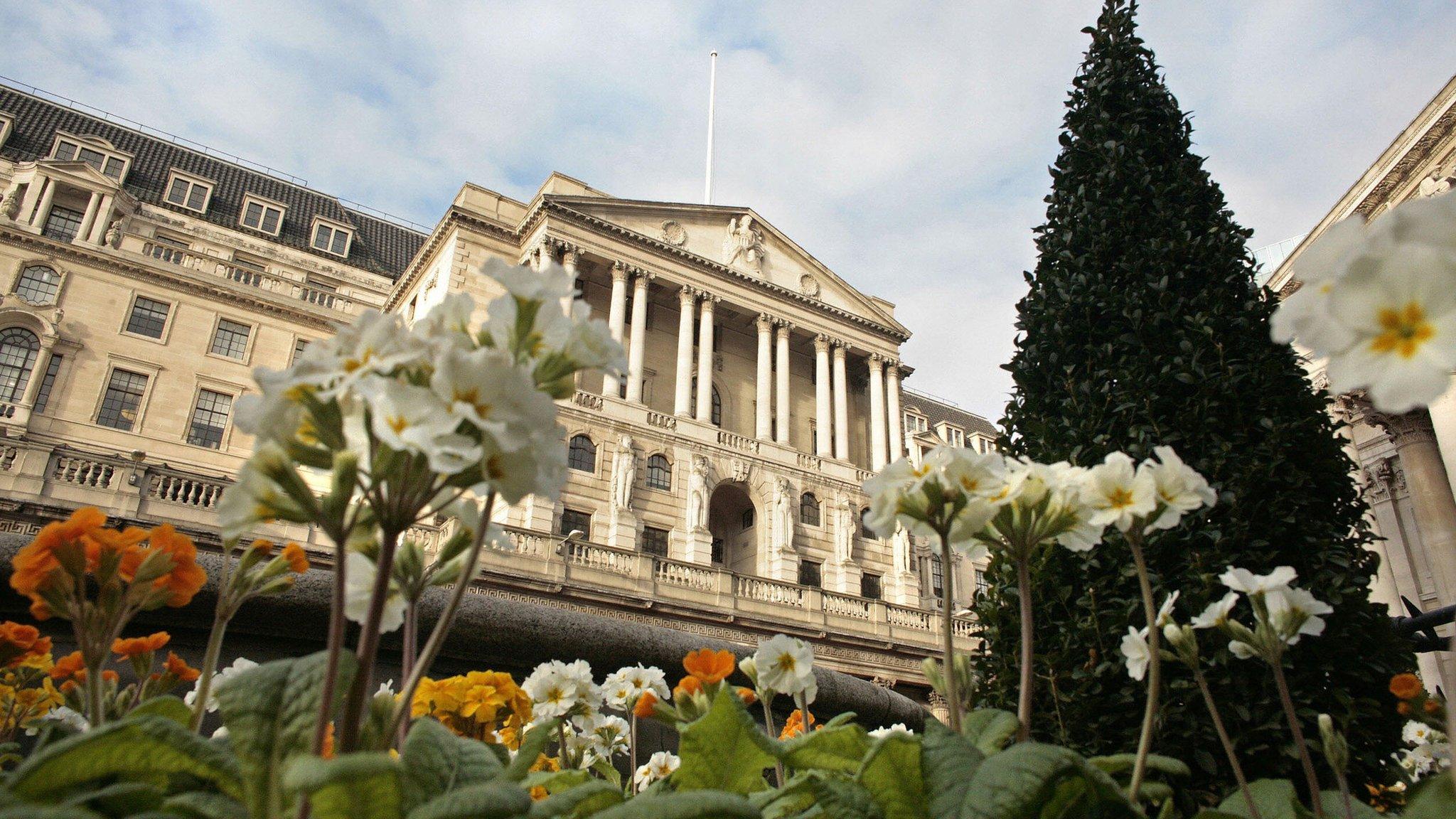Why is Billy Bragg at the Bank of England?
- Published

Billy Bragg is best known to many as a performer
"The last time I was at the Bank of England I was kettled," recalls the singer songwriter, Billy Bragg.
That was in 2013, when the social reformer was protesting outside against government cuts.
Kettling was a method of constraining protesters within a tight cordon, given them little room for manoeuvre.
This time he will be given complete freedom for a talk inside about reforming capitalism.
He was invited by the Bank, which wants to broaden the type of people it hears from to improve its understanding of the UK and its economy.
And Mr Bragg may still know his way around London's financial district. As a teenager in the mid-1970s, he worked as one of the City's many messenger boys, in what he calls the "shadow of the Bank".
Earlier he told the BBC's Today programme that quantitative easing (QE) should have been spent on people, not the banks.
QE, a way of pumping money into the economy to keep the banking system flowing and interest rates low, was widely used by central banks in leading economies, including the UK, after the financial crisis.
Feeling secure
Mr Bragg told the programme that that billions of pounds worth of quantitative easing carried out by the Bank of England "has not got into the real economy".
"It's still sloshing around in the financial sector and that money was put forward to help corporates feel secure after the financial crash in 2008."
He said it was more important that people felt secure: "It is consumers who drive growth and I think that we should be doing what we can to make them feel secure - secure in their jobs, secure in their health, secure in their education, secure in their housing.
"I don't see why that sort of money, the QE money, couldn't be directed to schools, to hospitals and to a national investment bank what works with small and medium-sized enterprises."

The Bank of England wants to hear views from a broader range of people
Entrepreneur Luke Johnson, who has been involved with businesses including Pizza Express, Patisserie Valerie, and the Giraffe restaurant chain, defended the use of QE.
He told the Today programme: "It is not only consumers that drive the economy, it is investment and QE was introduced to maintain investment and that supported jobs."
Mr Johnson said that he accepted that capitalism wasn't perfect, but that the alternatives were often worse: "There are more people in work than in history. Unemployment is at a record low and wages are rising."
Billy Bragg's speech, which will touch on a wide range of subjects including Donald Trump, the fall of communism, and even the beheading of Charles I, will say: "While [QE] this undoubtedly saved ordinary citizens from a great deal of financial pain, an attempt to return to business as usual via an extended period of austerity has caused a great deal of misery.
"Now the national debt is high... because the majority of benefits go to people in work, because the government is forced to subsidise wages to ensure that people have enough money to live on, because workers have no way to put pressure on wages, because unions are marginalised and protections abandoned."
Mr Bragg, who says he was surprised to be asked to speak to the Bank, will be presenting his views in a seminar to those same bankers he is criticising. As there will be questions taken afterwards, they will get to tell him what they think of his views, too.
He said: "It's going to be quite interesting to go in there today and look them in the eye."
- Published22 February 2018

- Published17 April 2018
- Published22 March 2018
